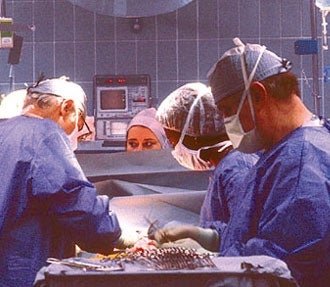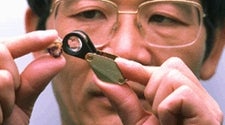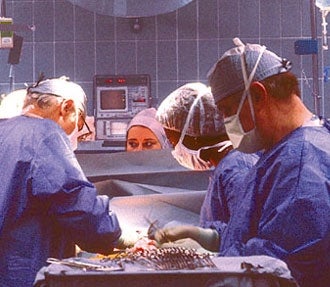MILWAUKEE, WI–In the first operation of its kind, doctors at St. Luke’s Medical Center successfully transplanted a mouse heart into a human Tuesday.

Hospital officials are calling the procedure “a complete success.”
“The patient is recuperating nicely,” chief cardiologist Dr. Alex Sutin told reporters. “We are confident he will be able to enjoy a long, happy life, just as long as he doesn’t overexert himself by, say, attempting to walk.”
The patient, 58-year-old Beloit, WI, bus driver Raymond Calvecchia, was diagnosed last month with a rare degenerative heart condition known as idiopathic dilated cardiomyopathy. He was not expected to live another eight weeks without a donor heart, Sutin said.
“We searched every database for a suitable human donor,” said Sutin, who performed the groundbreaking operation, “but none could be found. In the end, we decided to go with a compatible mouse.”
“Mice have very clear arteries,” Sutin noted.
Though the nine-hour procedure was ultimately successful, some difficulties arose during surgery. “We ran into problems when it came time to graft Mr. Calvecchia’s aorta onto the organ,” Sutin said. “The heart kept falling into the aortal opening and had to be fished out with forceps.”

Calvecchia is awake and alert, but he could not address the media, as doctors have cautioned him against movement of any kind for the rest of his life.
“His heart is already pounding like a jackhammer at a rate of approximately 1,100 beats per minute,” Sutin said. “His family has advised the nursing staff what TV shows he prefers, as changing the channels or requesting that it be done could induce a massive coronary.”
Due to the rate of cardiac excitement that could result, Calvecchia is not permitted to watch news, sports or comedy shows of any kind. The only programming he is allowed to have on is cable-access city-council meetings and UPN’s The Sentinel.
The operation is being hailed as the biggest breakthrough in interspecies transplants since October 1995, when doctors at New York’s Mt. Sinai Hospital implanted a Brooklyn man with a hamster liver. Though the procedure was initially successful, the liver developed terminal cirrhosis when the patient used an alcohol-based mouthwash.







